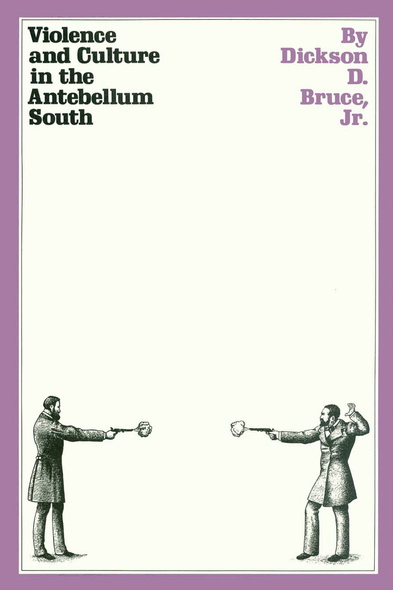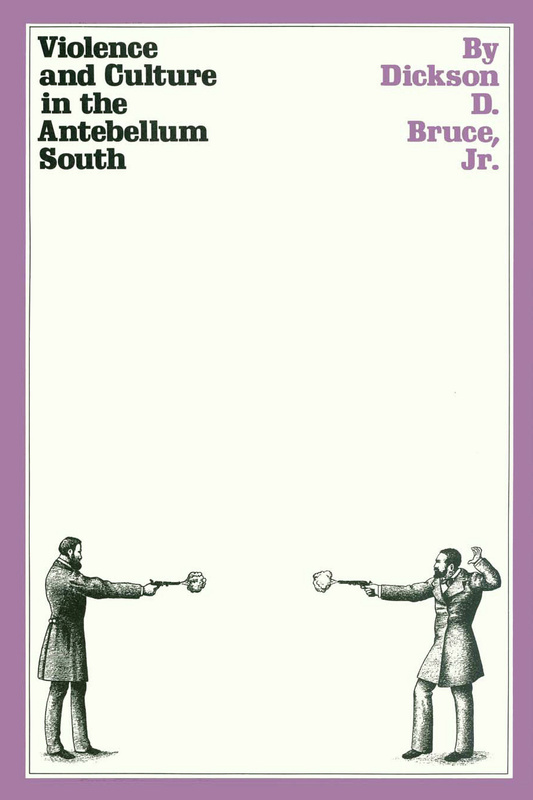Our shopping cart is currently down. To place an order, please contact our distributor, UTP Distribution, directly at utpbooks@utpress.utoronto.ca.
This provocative book draws from a variety of sources—literature, politics, folklore, social history—to attempt to set Southern beliefs about violence in a cultural context. According to Dickson D. Bruce, the control of violence was a central concern of antebellum Southerners.
Using contemporary sources, Bruce describes Southerners’ attitudes as illustrated in their duels, hunting, and the rhetoric of their politicians. He views antebellum Southerners as pessimistic and deeply distrustful of social relationships and demonstrates how this world view impelled their reliance on formal controls to regularize human interaction.
The attitudes toward violence of masters, slaves, and “plain-folk”—the three major social groups of the period—are differentiated, and letters and family papers are used to illustrate how Southern child-rearing practices contributed to attitudes toward violence in the region. The final chapter treats Edgar Allan Poe as a writer who epitomized the attitudes of many Southerners before the Civil War.
- Acknowledgments
- Introduction
- 1. The Southern Duel
- 2. Preparation for Violence: Child-Rearing and the Southern World View
- 3. Feeling and Form: The Problem of Violence in Society
- 4. Violence in Plain-Folk Society
- 5. Slavery and Violence: The Masters’ View
- 6. Slavery and Violence: The Slaves’ View
- 7. Militarism and Violence
- 8. Violence and Southern Oratory
- 9. Hunting, Violence, and Culture
- 10. Violence in Southern Fiction: Simms and the Southwestern Humorists
- Conclusion: Edgar Allan Poe and the Southern World View
- Notes
- Bibliography
- Index





